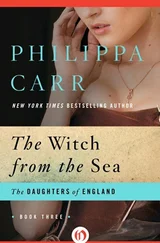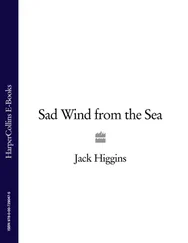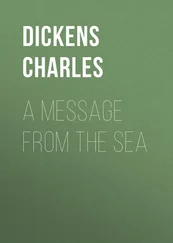Ellida. Yes. It never occurred to me to do otherwise. Well, anyhow, he had to go away. But now, when he was to bid me farewell—. No; you never could imagine what he thought of—
Wangel. Well? Tell me.
Ellida. He took from his pocket a key–ring—and drew a ring that he always wore from his finger, and he took a small ring I had. These two he put on the key–ring. And then he said we should wed ourselves to the sea.
Wangel. Wed?
Ellida. Yes, so he said. And with that he threw the key–ring, and our rings, with all his might, as far as he could into the deep.
Wangel. And you, Ellida, you did all this?
Ellida. Yes—only think—it then seemed to me as if it must be so. But, thank God I—he went away.
Wangel. And when he was gone?
Ellida. Oh! You can surely understand that I soon came to my senses again—that I saw how absolutely mad and meaningless it had all been.
Wangel. But you spoke just now of letters. So you have heard from him since?
Ellida. Yes, I have heard from him. First I had a few short lines from Archangel. He only wrote he was going to America. And then he told me where to send an answer.
Wangel. And did you?
Ellida. At once. I wrote him, of course, that all must be at an end between us; and that he must no longer think of me, just as I should no longer think of him.
Wangel. But did he write again?
Ellida. Yes, he wrote again.
Wangel. And what was his answer to your communication?
Ellida. He took no notice of it. It was exactly as if I had never broken with him. He wrote quite composedly and calmly that I must wait for him. When he could have me he would let me know, and then I was to go to him at once.
Wangel. So he would not release you?
Ellida. No. Then I wrote again, almost word for word as I had before; or perhaps more firmly.
Wangel. And he gave in?
Ellida. Oh, no! Don't think that! He wrote quietly, as before—not a word of my having broken with him. Then I knew it was useless, and so I never wrote to him again.
Wangel. And you never heard from him?
Ellida. Oh, yes! I have had three letters since then. Once he wrote to me from California, and a second time from China. The last letter I had from him was from Australia. He wrote he was going to the gold–mines; but since then he has made no sign.
Wangel. This man has had a strange power over you, Ellida.
Ellida. Yes, yes! The terrible man!
Wangel. But you mustn't think of that any more. Never again—never! Promise me that, my dear, beloved Ellida. Now we must try another treatment for you. Fresher air than here within the fjords. The salt, fresh air of the sea! Dear, what say you to that?
Ellida. Oh! don't speak of it! Don't think of it! There is no help in this for me. I feel that so well. I can't shake it off—not even there.
Wangel. What, dear?—What do you really mean?
Ellida. I mean the horror of it, this incomprehensible power over the mind.
Wangel. But you have shaken it off—long since—when you broke with him. Why, all this is long past now.
Ellida (springing up). No; that it is not—it is not!
Wangel. Not past?
Ellida. No, Wangel, it is not past; and I fear it never will be—never, in all our life.
Wangel (in a pained voice). Do you mean to say that in your innermost heart you have never been able to forget this strange man?
Ellida. I had forgotten him; but then it was as if he had suddenly come back again.
Wangel. How long ago is that?
Ellida. It's about three years ago, now, or a little longer. It was just when I expected the child.
Wangel. Ah! at that time? Yes, Ellida—now I begin to understand many things.
Ellida. You are mistaken, dear. What has come to me? Oh! I believe nothing on earth will ever make it clear.
Wangel (looking sadly at her). Only to think that all these three years you have cared for another man. Cared for another. Not for me—but for another!
Ellida. Oh! you are so utterly mistaken! I care for no one but you.
Wangel (in a subdued voice). Why, then, in all this time have you not lived with me as my wife?
Ellida. Because of the horror that comes from the strange man.
Wangel. The horror?
Ellida. Yes, the horror. A horror so terrible—such as only the sea could hold. For now you shall hear, Wangel.
(The young townsfolk come back, bow, and pass out to the right. Together with them come ARNHOLM, BOLETTE, HILDE, and LYNGSTRAND.)
Bolette (as she passes by). Well, are you still walking about up here?
Ellida. Yes, it is so cool and pleasant up here on the heights.
Arnholm. We, for our part, are going down for a dance.
Wangel. All right. We'll soon come down—we also.
Hilde. Goodbye, for the present!
Ellida. Mr. Lyngstrand, will you wait one moment? (LYNGSTRAND Stops. ARNHOLM, BOLETTE and HILDE go out. To LYNGSTRAND.) Are you going to dance too?
Lyngstrand. No, Mrs. Wangel. I don't think I dare.
Ellida. No, you should be careful, you know—your chest. You're not quite well yet, you see.
Lyngstrand. Not quite.
Ellida (with some hesitation). How long may it be now since you went on that voyage?
Lyngstrand. That time when I contracted this weakness?
Ellida. Yes, that voyage you told me about this morning?
Lyngstrand. Oh! it's about—wait a moment—yes, it's a good three years now.
Ellida. Three years, then.
Lyngstrand. Perhaps a little more. We left America in February, and we were wrecked in March. It was the equinoctial gales we came in for.
Ellida (looking at WANGEL). So it was at that time—
Wangel. But, dear Ellida—
Ellida. Well, don't let me detain you, Mr. Lyngstrand. Now go down, but don't dance.
Lyngstrand. No, I'll only look on. (He goes out.)
Ellida. Johnston was on board too, I am quite certain of it.
Wangel. What makes you think so?
Ellida (without answering). He learnt on board that I had married another while he was away. And so that very hour this came over me.
Wangel. The horror?
Ellida. Yes, all of a sudden I see him alive right in front of me; or, rather a little in profile. He never looks at me, only he is there.
Wangel. How do you think he looks?
Ellida. Exactly as when I saw him last.
Wangel. Ten years ago?
Ellida. Yes; out there at Bratthammeren. Most distinctly of all I see his breastpin, with a large bluish–white pearl in it. The pearl is like a dead fish's eye, and it seems to glare at me.
Wangel. Good God! You are more ill than I thought. More ill than you yourself know, Ellida.
Ellida. Yes, yes! Help me if you can, for I feel how it is drawing closer and more close.
Wangel. And you have gone about in this state three whole years, bearing for yourself this secret suffering, without confiding in me.
Ellida. But I could not; not till it became necessary for your own sake. If I had confided in you I should also have had to confide to you the unutterable.
Wangel. Unutterable?
Ellida. No, no, no! Do not ask. Only one thing, nothing more. Wangel, when shall we understand that mystery of the boy's eyes?
Wangel. My dear love, Ellida, I assure you it was only your own fancy. The child had exactly the same eyes as other normal children have.
Ellida. No, he had not. And you could not see it! The child's eyes changed colour with the sea. When the fjord lay bathed in sunshine, so were his eyes. And so in storm. Oh, I saw it, if you did not!
Wangel (humouring her). Maybe. But even if it were true, what then?
Ellida (in lower voice, and coming nearer). I have seen such eyes before.
Wangel. Well? Where?
Ellida. Out at Bratthammeren, ten years ago.
Wangel (stepping back). What does it mean?
Ellida (whispers, trembling). The child had the strange man's eyes.
Читать дальше












